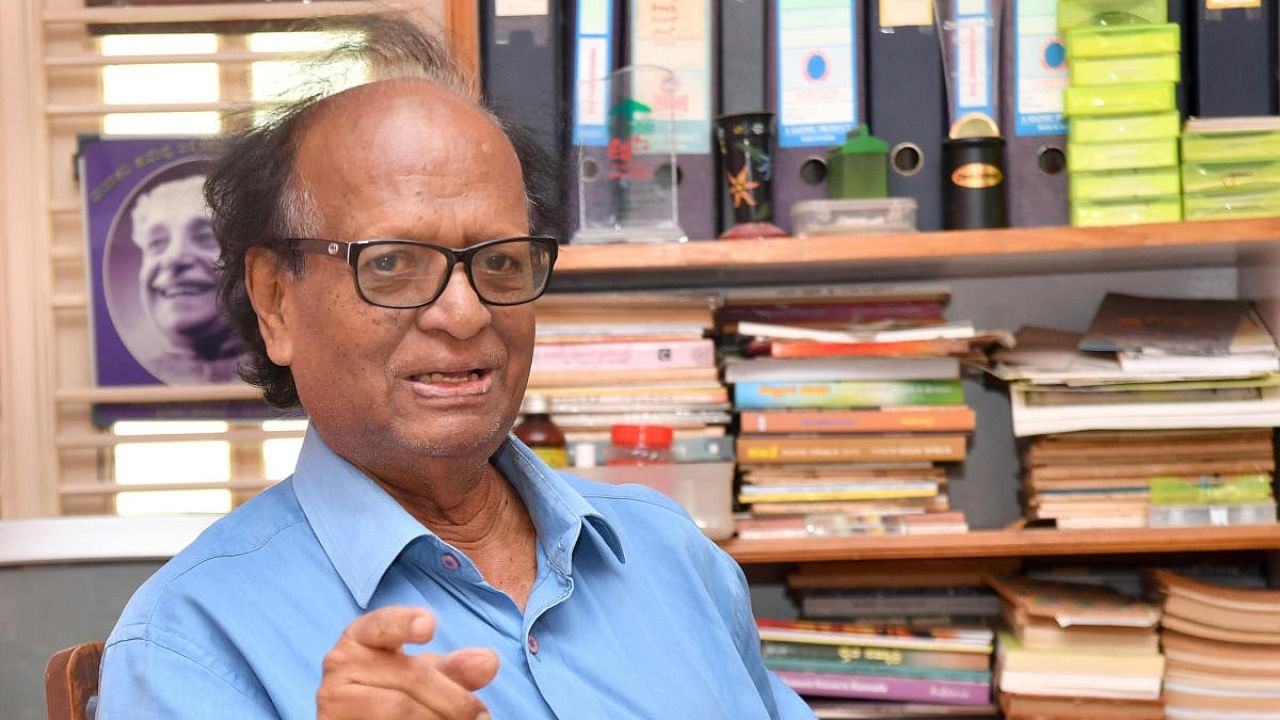
Chandrashekhar Patil, popularly known as Champa, was my teacher, a senior colleague and above all my witty, life-affirming guerilla guru. The news of his death has sunk somewhere deep inside me. But I cannot associate him with sadness and sorrow even in memory. It was always full-throated laughter, ready wit and beneath it a serious, uncompromising anti-establishment mindset.
As Bertolt Brecht wanted to say of himself, Champa always kept those in power uncomfortable with his devastating humour, satirical writings and his ‘Dharwadi querulousness’. At the department of English in Karnatak University, he had already formally divorced English literature, taught phonetics and took us out of classrooms onto the streets to protest against a fake spiritual guru and later to participate in the JP movement and against emergency. He taught us the skills of fearless argument, quick guerilla-like moves and protecting ourselves from activists’ life-denial through gregarious laughter.
His presence always ensured freedom from all conventions, allowing me and my friends to smoke while he read his poems in a corner room of Karnataka Vidya Vardhaka Sangha. When I told him that his activism had made him a minor poet despite his immense talent, he retorted, ‘No, I am not a major poet, I prefer to be a razor poet’. He was imprisoned during the emergency and wrote a brilliant memoir of his time in the Dharwad prison. Later, we met often and there was always that warmth and affection for me.
He was a fine poet blending a deep lyricism with wit and political consciousness. His absurd plays are among his finest achievements wherein he probes the ambiguities of existence through a rich metaphorical dramatic idiom. He edited the little journal Sankramana for over 50 years without a break till his recent serious illness. It was a lively forum for literary debate and anchored the Navya (literary modernism) in Kannada. He was also one of the pioneers of the Barahagarara Okkuta and the protest (Rebel) (Bandaya) movement which brought about a paradigm shift from the solipsistic individualism of modernism to committed socially-oriented writing. As a denizen of Shivamogga, I can never forget his courage as president of Kannada Sahitya Parishat in defying the political regime’s pressures to prevent Gauri Lankesh from speaking at the Sahitya Sammelana held in Shivamogga. He was the eternal rebel, of course always with a cause.
His passing away marks the end of a liberal argumentative rebellious phase in Kannada literature when it was not antinational for the young to speak out their minds. There was always a Lankesh, a Champa and a Tejaswi to mentor them. In some rare moments of togetherness without a crowd, I would always tell him that there were two Champas in him. One, the witty belligerent street fighter and the other an inward-looking sensitive lyric poet who wrote, “I can’t do anything without love, not even hate”.
He would rubbish me by saying I was a typical middle-class individual.
(The writer is a well-known literary critic based in Shivamogga)